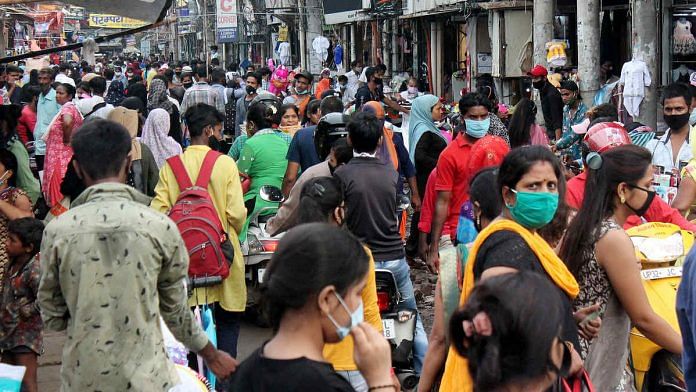
New Delhi: As the debate on population control heats up in the country, it’s not only the BJP MPs who plan to bring private members’ bills on population regulation, in the upcoming monsoon session of the Parliament. Senior Congress leader Abhishek Manu Singhvi has also proposed to move the Population Control Bill, which has been pending since 2019, during the Parliament session which starts on 19 July.
In his statement of objects and reasons for moving the bill, Singhvi has said rapid population growth has resulted in increasing pressure on the country’s limited natural resources. “As a result, we have witnessed a range of socio-economic issues in the past few decades such as large-scale environmental degradation, urban air pollution and the reduction in the size of agricultural holdings,” the statement says.
What the bill says
The bill seeks to introduce a host of incentives for population control as well as disincentives for government employees failing to adhere to the two-child norm.
Among the disincentives, the bill proposes that those having more than two children will be barred from contesting Lok Sabha, state assembly, and panchayat elections. They will also be ineligible for getting elected to the Rajya Sabha and state legislative councils.
Such a person will also be barred from getting promotion in government jobs, applying to ‘Group A’ jobs under the central and state government, and receiving any kind of government subsidy, in case the couple falls in the Above Poverty Line category.
Besides, the bill also proposes that one year after the commencement of the Act, all central government employees will have to submit an undertaking in writing to the respective appointing authority that they shall not “procreate more than two children.”
Only those employees with two children will be allowed to have one more child in case one of the children is suffering from a disability or any other circumstances as may be prescribed.
Central government employees who violate the two-child norm shall be liable for dismissal from service, the bill says.
Voluntary sterilisation, population stabilisation fund
The bill proposes a host of incentives for those having one child and for parents who undergo voluntary sterilisation. In such cases, not only preference will be given to the single child for admission in institutes of higher education, preference will also be given to single child in government jobs.
If both husband and wife, in the case of a married couple, who are living below the poverty line and have only one child, voluntarily undergo sterilisation, they shall get a one-time lump sum amount of Rs 60,000 from the central government if the single child is a boy. In case of a girl child, the couple will receive an amount of Rs 1 lakh.
The bill also proposes setting up the National Population Stabilisation Fund, where both central and state governments shall contribute. States with higher fertility rate shall contribute a higher ratio compared to states with lower fertility rate.
The money collected under the Fund shall be redistributed to the states and Union Territories that have implemented reforms to control population and have been able to significantly reduce their population growth rate, the bill proposes.
In the monsoon session, BJP Rajya Sabha nominated member Rakesh Sinha has also proposed to move a private members’ bill on Population Regulation, which seeks to disqualify an MP, MLA or anybody from the local self-government if he or she has more than two living children.
A private member bill can be introduced in the Lok Sabha and Rajya Sabha by individual MPs, who are not government ministers.
Subscribe to our channels on YouTube & Telegram
Why news media is in crisis & How you can fix it
India needs free, fair, non-hyphenated and questioning journalism even more as it faces multiple crises.
But the news media is in a crisis of its own. There have been brutal layoffs and pay-cuts. The best of journalism is shrinking, yielding to crude prime-time spectacle.
ThePrint has the finest young reporters, columnists and editors working for it. Sustaining journalism of this quality needs smart and thinking people like you to pay for it. Whether you live in India or overseas, you can do it here.